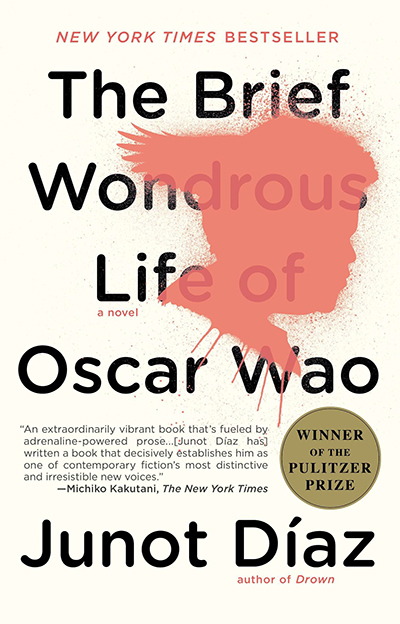
I write primarily in English, but lately, I’ve found myself incorporating more and more Spanish words, drawing specifically on chilenismos. Although English is technically my second language, it’s the language in which I have the most fluency. So whence this need to weave in Spanish and write bilingually?
I recently attended a workshop where I had the opportunity to sit with this question. On April 22, Ofelia Montelongo Valencia hosted the Bilingual Creative Writing Workshop, sponsored by the Latin American Studies Center at the University of Maryland. She asked participants a critical question. “Why is writing bilingually important to you?” By “bilingual writing,” she was referring to using two languages in the same work. Someone writing bilingually has decided that the best way to convey their meaning is through two languages.
For a long time, I didn’t think writing bilingually was important to me. Part of this arose from my own ignorance of what bilingual literature could be. As a kid growing up in a mostly white town, I wasn’t exposed to Latinx authors or bilingual writing. Though I read widely as a child, my reading list became very narrow when I got to high school. By then, I was reading books that were “good for me”; these were typically by white, long-dead authors. I had seen those “what to read to get into Harvard” book lists and I was eager to make sure I had the “right” education. I was the oldest child of immigrant parents and navigating a world unfamiliar to my parents. I was striving to do things the “right” way.
It wasn’t until college that I started reading outside my bubble, and it wasn’t until I’d attended events featuring authors from around the world that I began to think about writing bilingually.
Yet, despite having grown up bilingual, I wasn’t sure if I could write in two languages. I didn’t know how to go about it.

In 2007, when I was in undergrad, Junot Díaz published the landmark Brief and Wondrous Life of Oscar Wao. It was a critical work for American literature, and an inspiration for many Latinx writers. Because of its brilliance, it became my classmates’ seemingly one and only touchstone for Latinx literature. In grad school, when I did start incorporating Spanish into my writing, Díaz’s work would come up in relation to my work all the time. Yet my experience as a Chilean-American, and as a woman, was so far from what Díaz had been writing about. I felt like I was writing in his shadow though I’d never aspired to be in that position. I distanced myself from Oscar Wao and, to my detriment, glossed over its craft lessons as a result.
Well, I did go back eventually. I reread Oscar Wao in awe.
Díaz wrote in Spanglish. Unapologetically. That was incredible. He didn’t care about being understood by the “mainstream”; he cared about telling the story the way it demanded to be told.
Yet part of the reason I wasn’t immediately inspired to write in Spanglish as in Oscar Wao was that my own experience of mixing English and Spanish was distinct. Though I switch between English and Spanish at home, it’s not the vibrant Spanglish that so many communities use. I just haven’t lived that experience, and I was afraid that if I tried to mix Spanish and English, I would end up writing something inauthentic. I was afraid of writing an experience that wasn’t mine and inadvertently writing a caricature. The real problem, I later realized, was that I hadn’t tried it yet. I had to figure out my way of doing it, a way that felt authentic to me.
From Díaz, I also took this lesson: not italicizing Spanish words.
I was a grammar dork growing up, and I loved style manuals. To me, there was a “right” way to present text. However, style decisions aren’t objective. It has taken me, unfortunately, most of my life to see that italicizing non-English words can distance the reader from them. Quite literally, Italicization makes words look different than the rest of the text. As a result, they can feel alien, “other.” For example:
“Hola,” I say to my mother. It’s the first time I’ve seen her in seven months, thanks to this pandemic de mierda. “¿Cómo estás, Mami? I missed you so much.”
“Bien, mijita. ¿Y tú y tu marido? ¿Y el niño?“
[Note: My mom calls my dog “el niño.”]
In this example, italicizing these words makes it look like my mother and I are speaking two languages. Technically, we are. But subjectively? We are speaking the same language. A language born of intimacy, comfort, and home. When I speak in two languages, I don’t feel like one (English) is the standard and the other (Spanish) is exotic and should be italicized. Both are part of my everyday. Both come from my heart.

Back in grad school, when I imagined my readers, I imagined the readers like those in my workshops and what I felt was the mainstream market: readers who would struggle with anything that felt uninterpretable. Since then, I’ve been dedicating myself to reading more Latinx authors to make up for all that time I spent chasing the “canon” and being influenced by what my teachers and classmates said was “important.” I fell in love with Juli Delgado Lopera’s Fiebre Tropical (2020). This text, with its fluid marriage of Spanish and English, spoke to me like home. I felt like I belonged in its pages.
“Buenos días, reina. Immigrant criolla here reporting desde los Mayamis from our ant-infested townhouse. The broken air condition above the TV, the flowery couch, La Tata half-drunk directing me in this holy radionovela brought to you by Female Sadness Incorporated.”
—Opening of Chapter Uno of Fiebre Tropical by Juli Delgado Lopera
A few years ago, a woman asked me who my audience was, and I said, “People like me.” She looked confused. I realized that it may be strange to say that I’m writing for women like me, daughters of immigrants, who grew up in two-language households. But I’ve wanted to be a writer since I was young, seven or eight years old. I wrote stories because I didn’t feel like I was finding what I needed in the books I read. In fact, I didn’t feel like I was getting what I needed from the broader community, that couldn’t care less about my family’s history and culture. Now, I write the words I wished I’d read as a child.
Who else should I be writing for if not myself? My work should be a place where I feel like I belong.
Make Way for Gratitude
Many writers have written and spoken about writing bilingually and I want to extend my appreciation for their work. I also want to express gratitude for the voices that have helped get me to this point in my writing. Special shout out to Ofelia Montelongo Valencia for generously offering the Bilingual Creative Writing Workshop. You can follow her on Twitter at @ofeliamv23 or Instagram at @ofe23.